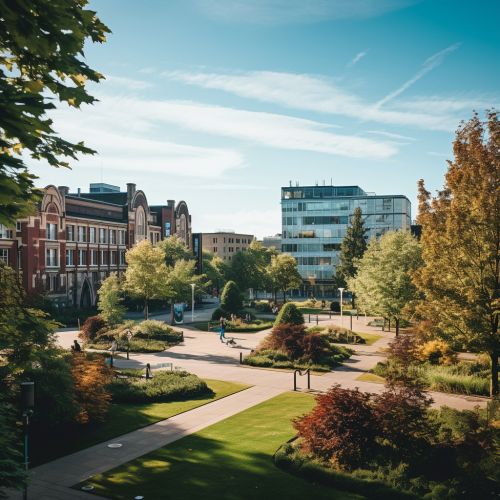Russell Group
Overview
The Russell Group is a collective of 24 public research universities in the United Kingdom. The group is committed to maintaining the highest research, education, and learning standards. Named after the Russell Hotel in London, where the first meetings took place, the Russell Group represents some of the oldest and most prestigious universities in the country.
History
The Russell Group was formed in 1994 to represent the interests of its member institutions in discussions with the government and other stakeholders. The group was named after the Russell Hotel in London, where the initial meetings took place. The group expanded from its original 17 members to 24 in 2012, with the addition of four English universities and one Scottish university.
Membership
The Russell Group is composed of 24 universities. These include some of the oldest and most prestigious institutions in the UK, such as the University of Oxford, the University of Cambridge, and the University of Edinburgh. The group also includes newer institutions like the University of York, which joined in 2012.


Research
The Russell Group is renowned for its research output. Collectively, the group's members secure two-thirds of all UK university research grant and contract income. This reflects the group's commitment to conducting research that is capable of making a significant impact on both a national and global scale. The group's members are at the forefront of advancements in fields as diverse as medicine, technology, and the humanities.
Education
Education at Russell Group universities is characterized by rigorous academic standards and a research-led approach. This approach ensures that students are not only gaining knowledge but also contributing to the creation of new knowledge. The group's universities offer a wide range of courses, from traditional subjects like history and philosophy to newer disciplines like computer science and environmental science.
Impact
The Russell Group has a significant impact on the UK economy. According to a report by the group, in 2017-18, its members generated £87 billion in gross value added (GVA) to the UK economy. The group's universities also support over 261,000 jobs across the country. Beyond the economic impact, the group's members contribute to society through public engagement, volunteering, and outreach activities.
Criticisms
Despite its prestige, the Russell Group has faced criticism. Some critics argue that the group's focus on research leads to an undervaluing of teaching. Others suggest that the group's universities are elitist and lack diversity. The group has responded to these criticisms by highlighting its commitment to widening participation and improving the student experience.
